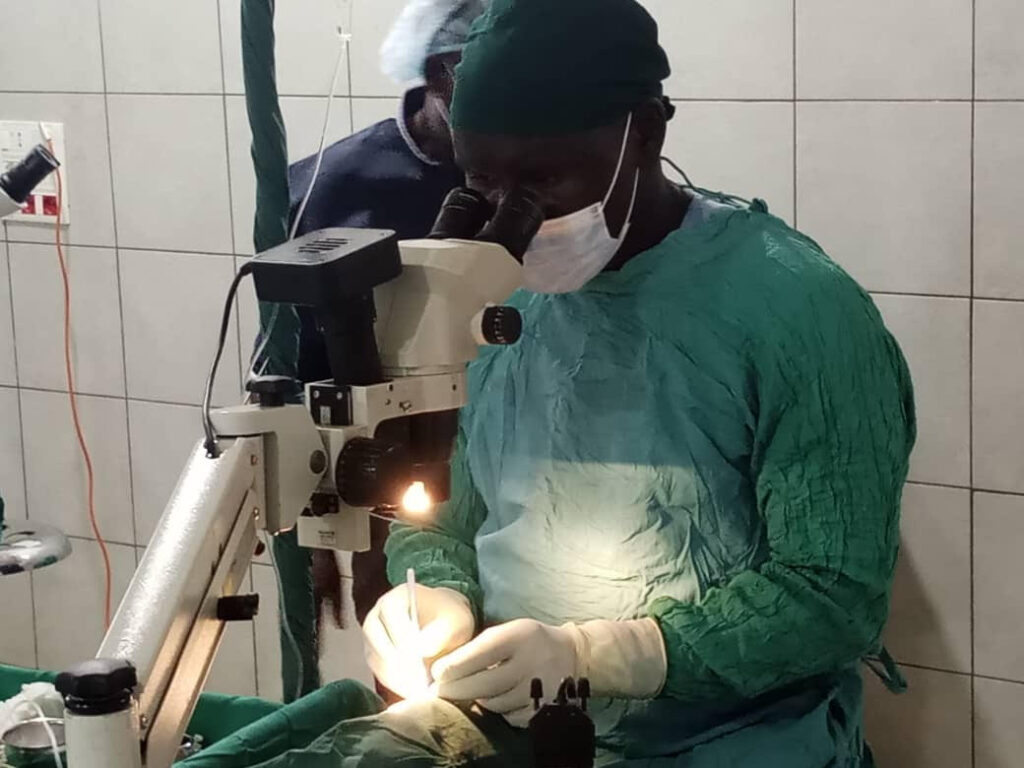A seven-day eye cataract surgery campaign targeting 500 patients in Rumbek, organized by Buluk Eye Center of Juba and supported by CUAAM International, concluded in Rumbek on Friday at Rumbek State Hospital.
Mary Adut, the CUAAM community health eye officer in Rumbek, told Radio Tamazuj on Friday that this is the sixth round of the eye cataract surgery campaign.
“We started earlier this month and have been working up to today (Friday). Our target was initially 500 patients, and we have managed to operate on 430 patients,” she stated. “Those who have been operated upon will be reviewed here at the hospital in one week, and then again in four weeks, and later in 12 weeks. It will be announced on the radio for them to come for review.”
For his part, Luki Martin Lokore, the team leader of the surgeons, said cases of eye cataracts are reducing in the state.
“We have been here before, and this is a sixth eye surgery campaign. This is what we do in partnership with CUAAM every year. The first time we came, we visited Cueibet County, and the target then was 300 patients, and we managed to reach about 400 patients,” he said. “It also depends on financing from the donor because the eye has a lot of conditions, and not only cataracts. However, there are a lot of climate conditions in Lakes State, so the most common condition here is cataracts, which we have been operating on.”
According to Lokore, there are also cases of trachoma that are irreversible when one is blind, and other states of infection that can be treated with antibiotics and mass campaigns. He added that there are also injuries that can be corrected.
“I urge the people in Lakes State with eye infections to visit Rumbek State Hospital Eye Unit and get treated because not every eye condition requires an operation,” he stated.
For his part, Terran Madit Terran, the medical director at Rumbek State Hospital, appreciated the eye surgery team who spent a week carrying out operations.
“They started exactly on 23 May, and today (Friday) marks the end of their activities. So far, as we are talking, the number of surgeries has reached 428, of which 412 are clear cataract surgeries and with a success rate of 98 percent. For us, this is a great achievement as a hospital and also for the team and the stakeholders,” he said. “We can say that the number is reducing, and it is good for us as a state, and we hope that these campaigns continue so that we eradicate blindness.”
“Cataracts are the leading cause of blindness in South Sudan, and yet it is a treatable disease, and surgery can be done,” Dr. Madit added.




